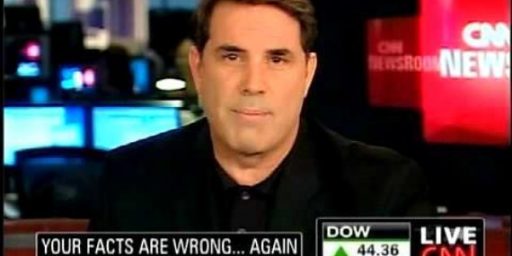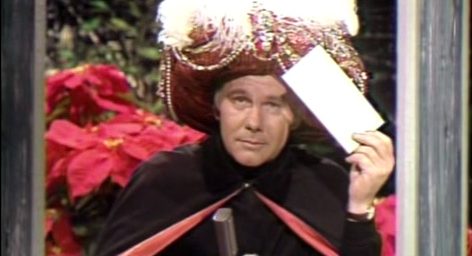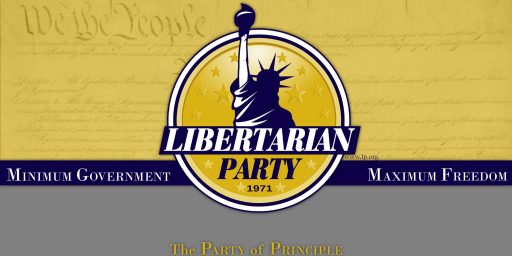Animal Rights and Libertarians
Jim Henley, Julian Sanchez, and Megan McArdle debate whether one can be a libertarian and simultaneously favor laws against animal cruelty.
While there are many theories and many stripes of libertarianism (as anyone reading Henley, Sanchez, and McArdle on a regular basis would soon discover) it seems to me that at the core of all of them is the Harm Principle, as articulated by John Stuart Mill:
That principle is, that the sole end for which mankind are warranted, individually or collectively, in interfering with the liberty of action of any of their number, is self-protection. That the only purpose for which power can be rightfully exercised over any member of a civilized community, against his will, is to prevent harm to others. His own good, either physical or moral, is not sufficient warrant. He cannot rightfully be compelled to do or forbear because it will be better for him to do so, because it will make him happier, because, in the opinion of others, to do so would be wise, or even right… The only part of the conduct of anyone, for which he is amenable to society, is that which concerns others.
It would seem, therefore, that any libertarian case for preventing cruelty to animals — or, more correctly, as Sanchez notes, the particular classes of animals we find cute and cuddly — would have to be built around its impact on other humans, not the animals themselves. Presumably, the chief harm to others in torturing animals that are the property of the torturer is psychic.
Can libertarians justify using the coercive power of the state to take away the liberty of a few on the basis that the thing prohibited creates severe emotional distress among a great many people? Or is that a slippery slope towards justifying any law based solely on societal norms?
UPDATE: Julian Sanchez rejects my suggestion that the Harm Principle is purely libertarian:
While it may be most frequently invoked by libertarians, I think the Harm Principle, at least as a strong presumptive default, has pretty wide appeal in American culture. We’re all Millians now, and the most dyed-in-the-wool paternalists today will earnestly tell you that all they’re really trying to do is prevent some externality or another. What’s more particularly characteristic of libertarians is that we tend to want to stay pretty close to Mill’s rather narrowly constrained concept of “distinct and assignable” harms, excluding all sorts of purely psychic harms, costs “imposed” on the public system by people who make unhealthy choices, and so on.
I agree that the Harm Principle has adherents among non-libertarians. I’d argue, though, that its embrace as the only rationale for state coercion is libertarian.
Bruce McQain argues that animals are property, pure and simple, and that any attempt to legislate that they be treated otherwise is a clear violation of libertarian principles. Commenter Robb Allen sees this is an inherent flaw in the philosophy: “[P]ure libertarianism is like pure communism. Really pretty in Power Point, but useless in real life. Like it or not, we live as a society, and there’s always enough people willing to use the state that you have to just deal with it.”
Of course, the fact that people have not fully internalized a theory does not make it flawed; people are not purely rational creatures, after all, and we often act against interests out of emotionalism. Most of us would prefer to a meal of chili burgers and curly fries to poached salmon and broccoli; that doesn’t render the former a healthy diet.
Meanwhile, Bill Quick can’t quite reconcile his libertarian beliefs with his instinctual desire to commit violence against animal abusers but he’s working on it.






I think the people who have the strongest emotional reaction to animal cruelty stories are responding to an instinctive sense of guardianship over the animals. Instead of being resources for members of society to use (or abuse) as they please, the animals are seen as limited members of the society themselves.
If you saw a dog that you knew to be ownerless being abused by a sadistic stranger, could you justify intervening? Most people could. Now what if that dog belonged to the stranger? I think most people could still justify intervention. Perhaps ownership of animals is predicated on effective stewardship. Even a libertarian would object to the abuse of a resource that doesn’t belong to the abuser.
I think Robert Bork may have used the example of torturing puppies to critique extreme libertarianism.
Your “slippery slope towards justifying any law based solely on societal norms” reflects the reality that psychic pain suffered by members of society at large is sometimes a legitimate basis for law. The proper balance between the claims of the many who are suffering psychic pain and the claim of the individual who desires the liberty to do as he pleases is not marked by the bright line extreme libertarians profess to see.
Put another way, there is no mechanistic algorithm for arriving at just and wise policy. That Objectivists insist on believing otherwise seems like a good basis for the perjorative “Randroids.”
An additional argument: extreme cruelty to animals inures its practitioners to cruelty, generally, and is part of a process than leads to cruelty to other humans.
Libertarian David Graham presents one of the best Libertarian arguments for animal rights that I’ve read. I’ve included the link: http://www.strike-the-root.com/4/graham/graham1.html
The hidden presupposition is that the class of entities that ought not be harmed is limited to people. Here I find Singer’s arguments pretty compelling: assuming that the principle of non-harm extends to the severely retarded, it seems arbitrary to not extend the reach of the principle to higher primates.
The contract theory enunciated above would seem to limit the reach of the power of the state to those who could consent to the power of the state. (the state is legitimate because I consent to it; in some sense, it’s my knowing consent that protects me). That forgets that the contract is a fiction: I no more consent to vest the power of coercion in the state than a monkey does.
Dead center once more, James. Clear as a bell! bravo!
Well said, jpe. Reducing other animals to the status of property/not-property is pretty sick.
what is a slave? is a chair a slave? is a hammer a slave? do we use and produce and abuse these tools against their will? do we cause them psychological and phsical pain? do they fell the need for autonomy or not?
how did a Southern slave owner justify his definition of property only a few decades ago? i mean – they were convinced that they had all the RIGHTS in the world to use and abuse… BLACK RIGHTS – how ludicrous… we feed our slaves and protect them from wild animals and such… they went to war with their fellow humans over it. Why the North went to war is clear – they valued the economy (ecology) advantages and considered blacks to have the right to freedom.. but the South considered blacks as beasts – they went to war with fellow humans in order to defend property and their way of life.
why has the US constitution suddenly changed in the 1960s – taking out “blacks are 2/3s of a human”?
do we believe in the benefits of free will and free economies or do we believe in oppression, tyranny and plan-economics… and if this holds true for the economy why should it be different for ecology and all other emotional, intelligent beings besides ourselves.. yes even women?! why should a white male benefit from the “liberation” of black women? because he is a “liber…”
the question is NOT – can one be a “liber..” AND for the liberty of animals… the question that needs so desperately to be answered is… “Can one be a libertarian and NOT support a free and self-governing animal people and ecology?” Free markets, free agents, free…
The south was simply too afraid and stuck in the a dangerous world-view regarding what makes people happy, what makes them rich and what makes them civilized. They were, despite some nice houses and fancy dresses of few, barbarians in many respects.
Hugo;
Thanks for the comment, It explains a lot about the importance of a knowledge of history in the drawing of conclusions, and the futility of persuasive argument in it’s absence. Keep up the effort!
Wow, an actually coherent and systematic survey of an important debate in libertarianism. You don’t see that much.
To the topic,however:
I think that it is absolutely right for you and some of those you refer to to point out that the “harm principle” implicitly incorporates a prior understanding of legitimate property rights. And there’s the rub. Many libertarians have a very primitive and naive understanding of property rights – both in dynamic and static terms.
The Lockean fairy tale about abundant gifts of nature and some prehistorical first claimants tells us virtually nothing at all about what current property right titles are legitimate, and the assertion that “one has the right to his property” tells us virtually nothing about what that property is or isn’t, can be or can’t be.
In some societies, for instance, land can’t be owned but can only be possessed while being actively used. In some societies land can’t be farmed, but can only be “used” to hunt and gather natural fruits. In some societies cows are sacred, cannot be owned, and can wander hither and yon inflicting damage and havoc at their will. Those aren’t “interferences by government” or “impositions on individual rights” they are parts of the INITIAL DEFINITIONS of what constitutes some of those rights. There is no discretionary government action involved at all.
And that last sentence, perhaps, isolates an element of this sort of discussion that you need to make more explicit in your discussion of a “harm principle.” One can only be harmed with relationship to one’s LEGITIMATE expectations. It is no harm to me if I can’t demand of you your automobile because it would be convenient for me to use it today. Similarly, I am, perhaps, not harmed if I don’t have “a right” to torture puppies. Do the puppies “have rights?” Ah, no, but neither do I “have a right” to inflict unnecessary harm upon them IF that is the way that things are set up “to start with,” and not some bureaucrat’s or policeperson’s discretionary decision down the road.
To put that one final way: every society starts out with a more or less detailed definition of what can be owned and what can be done with what is owned, a conception that usually is then “tweaked” here and there at the margins over time. That isn’t “intervention” or “unlibertarian,” it is a recognition of the existence of the economic fact of universal scarcity and the establishment of a “property rights regime” to systematically address that scarcity.